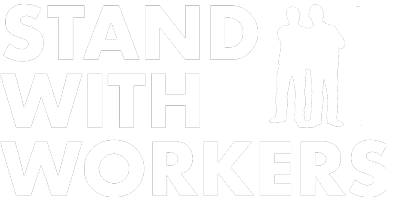I’m a government worker. What does Janus v. AFSCME mean for me?
Imagine having to pay a middle man to go to work. Pay up – or find another job. That’s the situation for more than 5 million government workers in 22 states. In Illinois, California, New York, Minnesota and other states, working in public service means paying money to a government union. This is a gross violation of workersʼ First Amendment rights to freedom of speech and freedom of association.
Government workers deserve to have a choice and a voice when it comes to unions in their workplace. This case asks the U.S. Supreme Court to ensure all government workers in the United States can decide for themselves whether to support a government union.
A ruling in favor of Mark Janus would extend right-to-work protections to all government workers. If you want to stay in the union, you can choose to do so. But if you feel the union at your workplace does not deliver value or reflect your priorities, then you won’t have to send part of your paycheck to the union every month.
I thought the Supreme Court already outlawed forcing people to pay for politics through their union?
Prior to the Janus ruling, government unions collected fees from nonmembers in 22 states. These fees were slightly less or sometimes equal to the amount of union dues paid by members. Unions claimed that money collected from nonmembers was not used for political purposes and only to fund the public-sector unions’ core purpose – representing workers in collective bargaining.
With the Janus v. AFSCME ruling, the Supreme Court ruled that even government unions’ collective bargaining activity is inherently political. When a union bargains with the government, it tells the government how much it should spend on workersʼ salaries, what kind of benefits it should provide, and how it should run its programs. When anyone else does that, everyone recognizes it as political speech, and we call it lobbying.
So, when a worker is forced to give money to a public-sector union to pay for collective bargaining, he or she is being made to pay for someone elseʼs political speech – something the First Amendment virtually never allows. That means the only way to protect workersʼ First Amendment rights is to allow them to choose whether to pay union fees at all.
Mark has requested the court refund $3,000 in union fees that he was forced to pay since March 23, 2013. The case is now in front of the U.S. Appeals court. If Mark is successful, this could have positive implications for thousands of other government workers who were forced to pay fees that the Supreme Court has since declared illegal, including those part of class-action lawsuits filed in federal court.
Will Mark Janus get a refund of the agency fees he paid?
What implications does this case have on private sector unions, such as trade unions?
None – Janus v. AFSCME only affects government workers and government unions. Workers who are affected by this case include public school teachers, municipal employees, state prison workers, law enforcement, employees of state government and any Americans who work for a government agency.
What happens to people who like their union, and who want a union in their workplace?
This case does not change anything for people who like their union and want to continue to financially support their union. Unions with collective bargaining agreements will still be able to bargain with government entities over things like compensation, work conditions, and benefits. Anyone who wants to be in a union and pay money to the union can do so.
The Supreme Court’s ruling only affects those who do not wish to financially support or join a union. All government workers now have the right to decide for themselves whether to support a union at their workplace without fear of losing their job.
Can workers who were forced to pay agency fees get a refund?
The Liberty Justice Center is representing government workers in Illinois, Maryland, Pennsylvania, and New York in federal class action lawsuits that seek to recoup a portion of the agency fees they were forced to pay. If you paid agency fees to a government union before June 27, 2018, find out if you may be eligible for a refund.
Why should unions provide services to people who don’t pay for them? Shouldn’t everyone who benefits from a union contract need to pay for it?
No one should be pressured or forced to pay union fees as a condition of working in public service. Right now, agency fee payers are forced to pay for services they donʼt necessarily want. Unions lobbied to exclusively represent and speak for government workers, regardless of whether these workers want union representation or support the unions’ policy positions. If unions do not want to exclusively represent all government workers, they lobby for legislation to represent only dues-paying members.
Why didn’t Mark Janus just get a different job if he doesn’t like the union?
Mark Janus was not a member of his union but he was forced to give the union part of his paycheck every month just to keep his job. He never voted for union representation, never asked the union to represent him in contract negotiations, and he did not support the union’s politics or policies. No one should be pressured or forced to pay union fees as a condition of working in public service.
How much are union dues?
Union dues and fees vary by state, and by contract. Mark Janus pays about $45 each month to AFSCME Council 31 in Illinois. Over a 20 year career in public service, this amounts to more than $10,000 in forced fees. Fees for some unions are higher. For example, in Chicago, public school teachers pay more than $1,000 annually.

